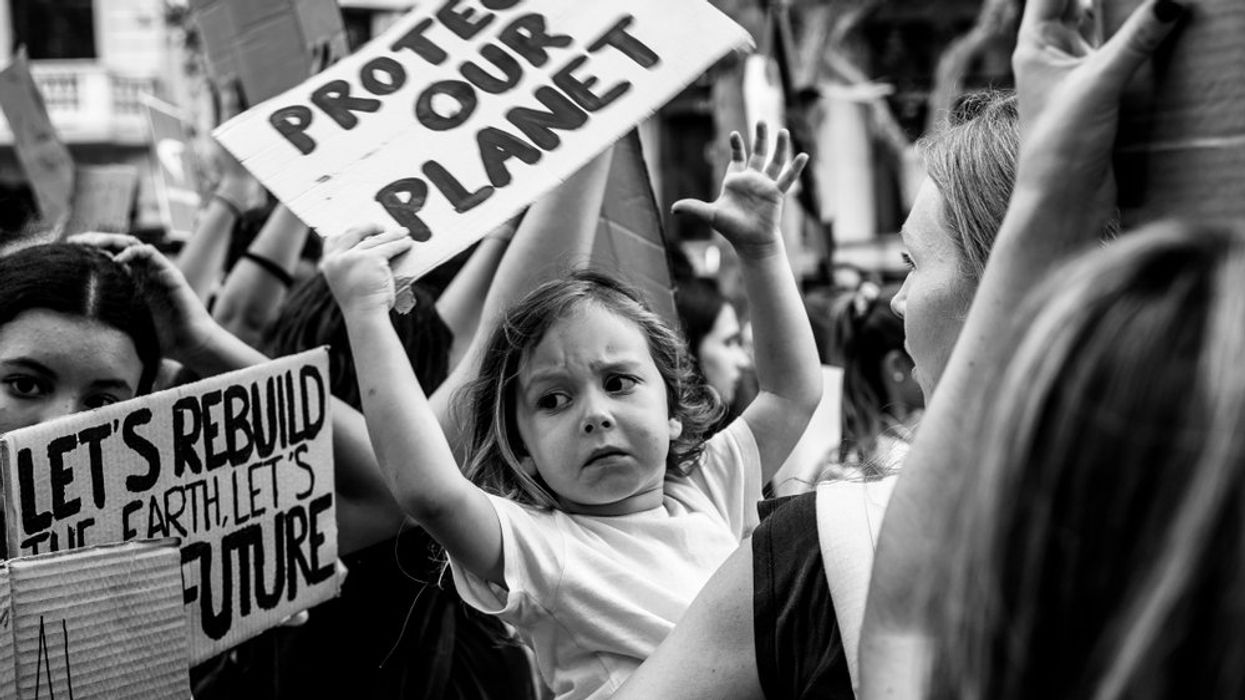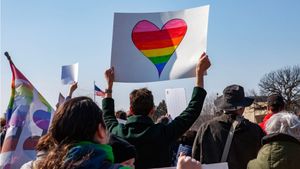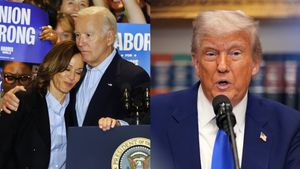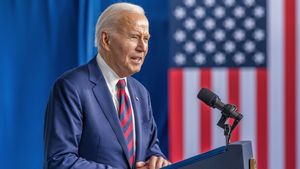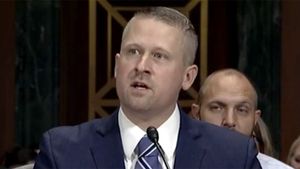Climate change has pushed millions of Americans to reconsider whether or not they want to have children.
According to a poll from ABC's Ipsos KnowledgePanel, 23 percent of adults between ages 18 and 45 say that climate change has made them reevaluate having a biological child. 25 percent say that climate change has made them consider having less children, and 12 percent say it has caused them to consider adoption as an alternative.
Some celebrities are among that group, as Miley Cyrus and Prince Harry have both expressed climate anxieties around raising families. Cyrus told Elle Magazine in 2019 that "until I feel like my kid would live on an Earth with fish in the water, I’m not bringing in another person to deal with that."
In a British Vogue interview, Prince Harry told primatologist Jane Goodall he would have "two, maximum!" in the face of growing environmental concerns.
"I’ve always thought: this place is borrowed," he said. "And, surely, being as intelligent as we all are, or as evolved as we all are supposed to be, we should be able to leave something better behind for the next generation."
While natural ecosystems are at risk of losing integral species and bodies of water as climate change persists, human societies are also vulnerable to intensifying natural disasters, such as hurricanes and wildfires. In the coming decades, cities are expected to face major resource shortages.
The Intergovernmental Panel on Climate Change has observed “widespread, pervasive impacts to ecosystems, people, settlements and infrastructure have resulted from observed increases in the frequency and intensity of climate and weather extremes," which they expect to worsen in the coming years if climate change is not meaningfully addressed.
The solution lies in policies limiting greenhouse gas emissions, which would prevent global temperatures from rising beyond the 1.5C average set by the United Nations. Many couples are seeking to reduce their carbon footprint, and according to a 2017 study, the resources needed to raise one child are equivalent to about 24 cars.
Kimberly Nicholas, an author of the study and researcher at Lund University in Sweden, told ABC that regardless of a minor positive effect, having less children is not a sustainable solution for climate change.
“It's a fundamental human right for people to decide freely for themselves if and when and whether they want to try to have a child,” she said. “Yes, having a child creates more emissions, [but] it also can create really powerful incentives for engaging in climate action.”
- Water Disasters Are Getting More Intense From Climate Change ›
- Shocker, Most Middle Schoolers Learn Next to Nothing About Climate Change ›
- Moose Play a Big Role in Climate Change ›
- Fungi Could Offer ‘Jaw-Dropping’ Solution to Climate Change | AdvocateChannel.com ›
- Canadian Wildfires Are ‘Unprecedented' Result of Climate Change, Leaders Say ›
- Iowa Meteorologist Quits After Receiving Death Threats Over Climate Change Coverage ›
- Logan Paul’s Energy Drink PRIME Faces Investigation For 'Serious Health Concern' ›
